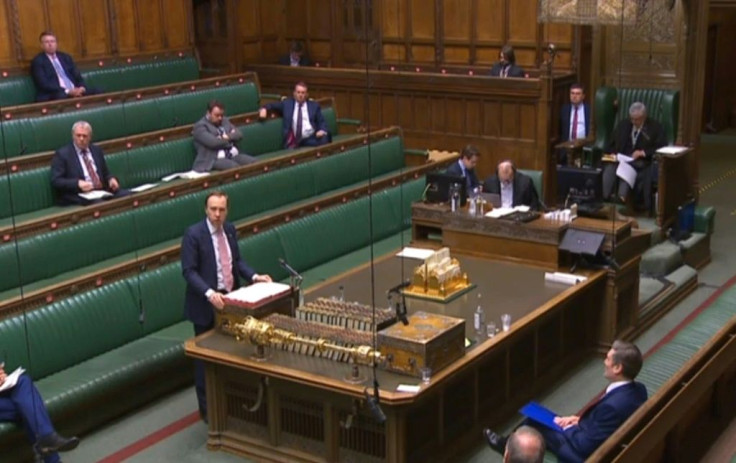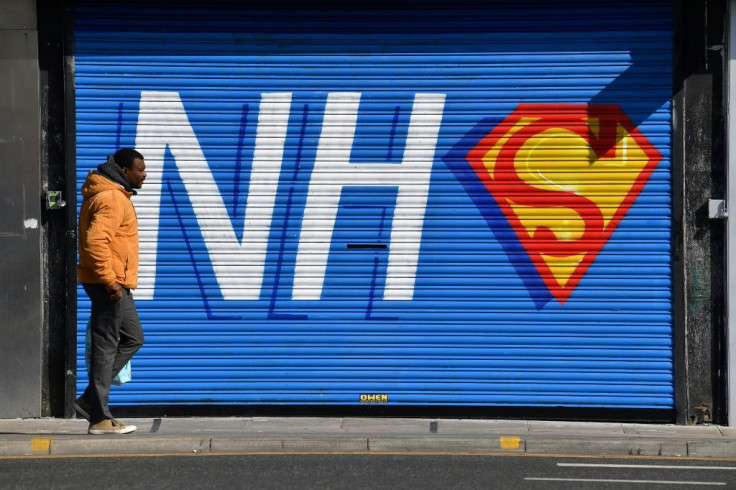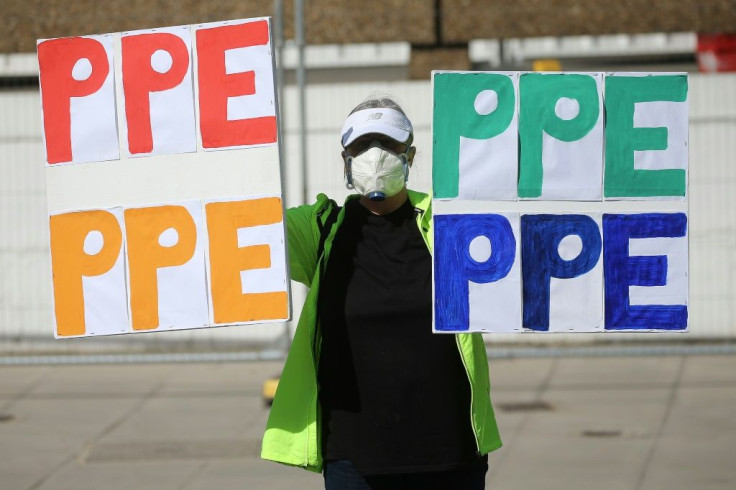UK Virus Measures Could Last For Months, Health Official Warns
Social-distancing measures to tackle coronavirus are likely to be in place for many more months, one of Britain's top health officials warned on Wednesday, as the world waits for either a vaccine or drugs that can stop people dying.
"Until we have those -- and the probability of having those any time in the next calendar year are incredibly small... we are going to have to rely on other, social measures," Chris Whitty, England's chief medical officer, told a media briefing.
Pressure is growing on the British government to explain how it might ease a month-long lockdown that has seen people confined to their homes to stem the spread of COVID-19.
But deaths continue to rise, reaching 18,100 on Wednesday -- an increase of 759 on the previous day -- making Britain one of the worst-hit countries in the global pandemic.

Foreign Secretary Dominic Raab, who is standing in for Prime Minister Boris Johnson following his hospitalisation with coronavirus, warned of the threat of a new wave of cases.
"The greatest risk for us now, if we eased up on our social distancing rules too soon, is that we would risk a second spike in the virus," he said.
Whitty said it was "wholly unrealistic" to expect the lockdown to be suddenly lifted.
Experts were looking at the effect of different social distancing measures, he said, but ministers would have decide on the right combination.
"We are going to have to do a lot of things, for really quite a long period of time. The question is, what is the best package," Whitty said.

Johnson has been out of action for more than two weeks after being hospitalised with coronavirus, spending three nights in intensive care.
In his absence, the government is battling growing criticism over its response to the crisis.
Labour leader Keir Starmer on Wednesday used his first appearance in parliament since his election at the helm of the main opposition party earlier this month to accuse ministers of being slow to act.

"There's a pattern emerging here: we were slow into lockdown, slow on testing, slow on protective equipment," he told MPs, many of whom were attending via videolink -- a first in the parliament's long history.
Raab rejected the accusation of being slow and hit back that Starmer was looking at the situation "with the benefit of hindsight".
Britain's death toll only covers those people hospitalised with coronavirus, and Whitty said when all the statistics were collected, he expected to see a "high mortality rate in care homes".
The state-run National Health Service (NHS) has radically expanded its critical care capacity in recent weeks but staff continue to complain about a lack of masks and gowns to protect themselves.
Ministers insist they are doing everything they can to get personal protective equipment (PPE) from abroad and ramp up production at home.
A Royal Air Force plane landed in Britain from Turkey on Wednesday after collecting a shipment of equipment including 400,000 badly needed surgical gowns.
But a simmering row has erupted over whether Britain missed a chance to bulk buy equipment through the European Union, which it left on January 31 but to which it retains close ties.
The government has blamed "communication problems" but the foreign ministry's top civil servant on Tuesday said it was a "political decision".
In an extraordinary U-turn, Simon McDonald then retracted his evidence to the foreign affairs committee, writing to tell them it was "incorrect".
Health Secretary Matt Hancock later revealed Britain had agreed to join the EU scheme on an "associate" basis but said it had yet to deliver anything.
European Commission spokesman Stefan de Keersmaecker said Britain had "ample opportunity" to participate in joint procurement schemes for coronavirus.
"As to why it did not participate, this is obviously something on which we cannot comment," he said.
© Copyright AFP 2024. All rights reserved.





















